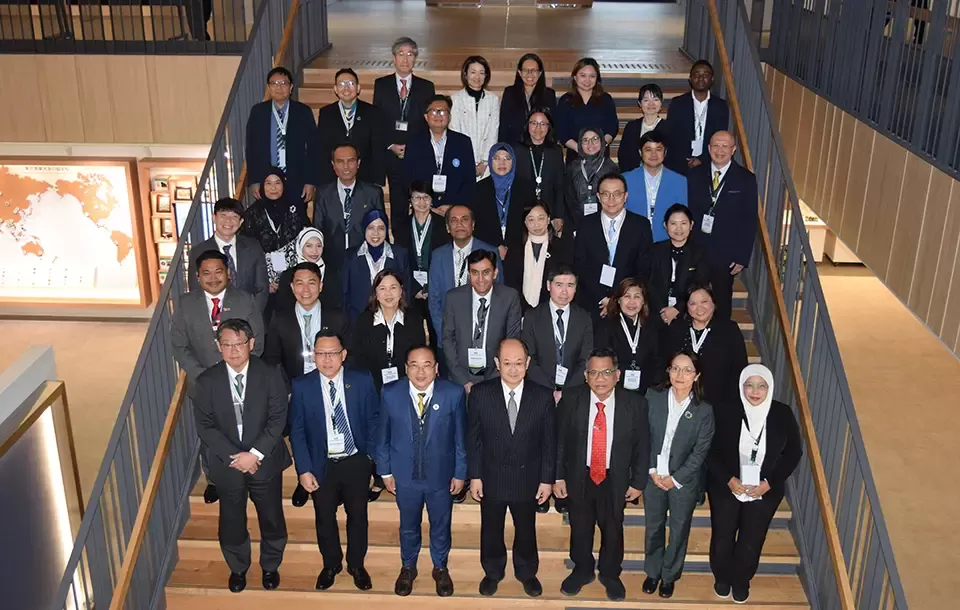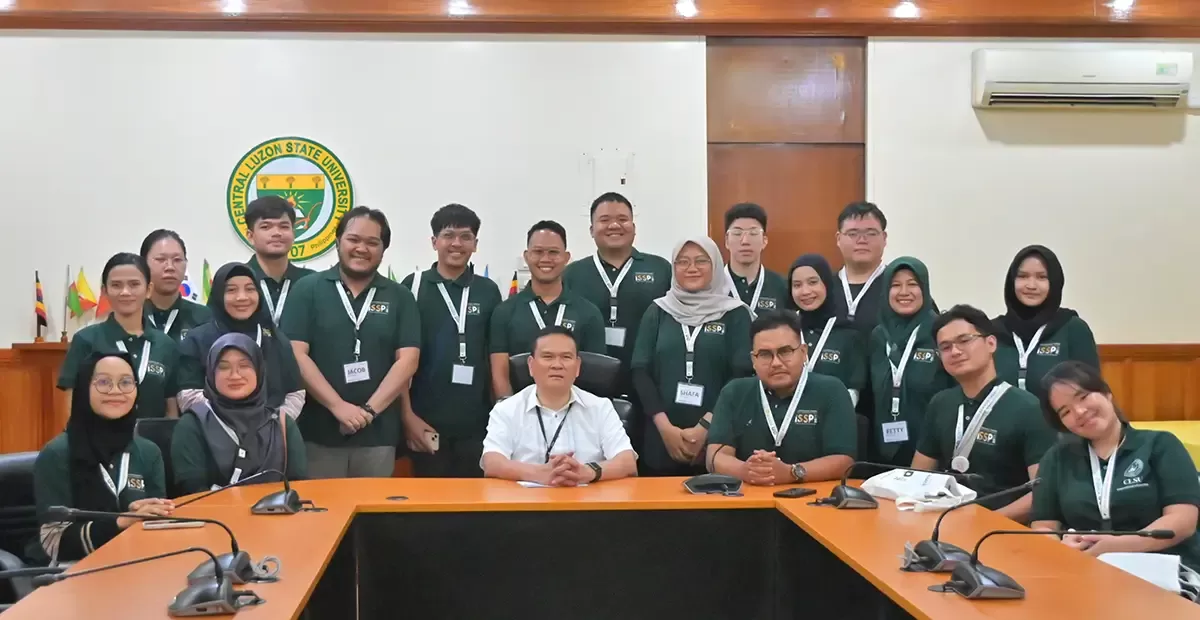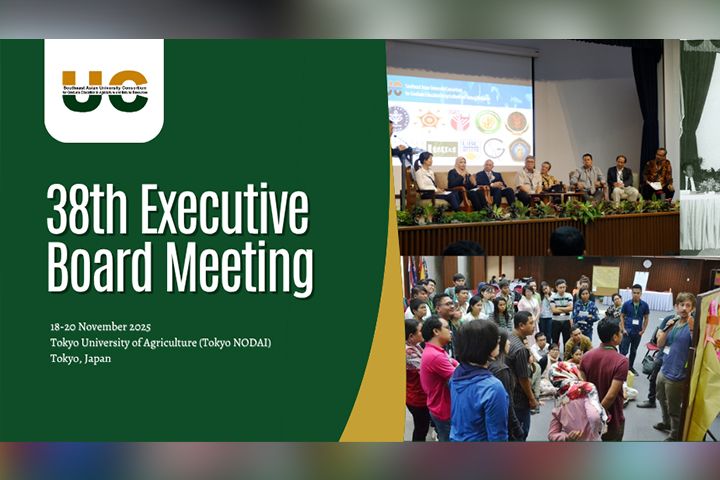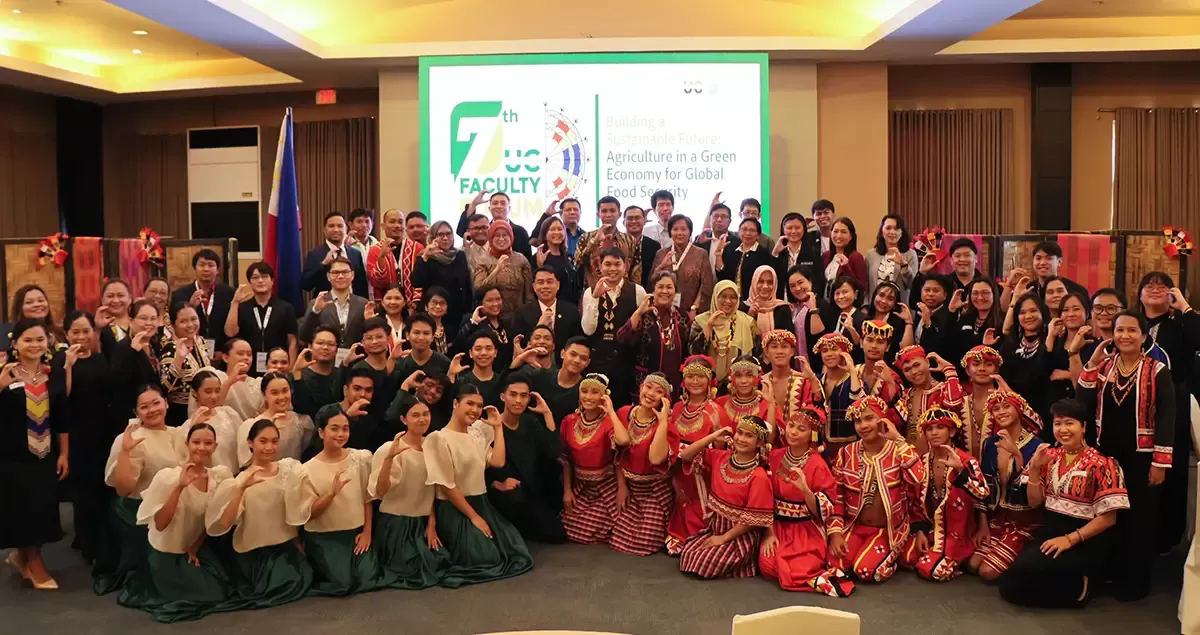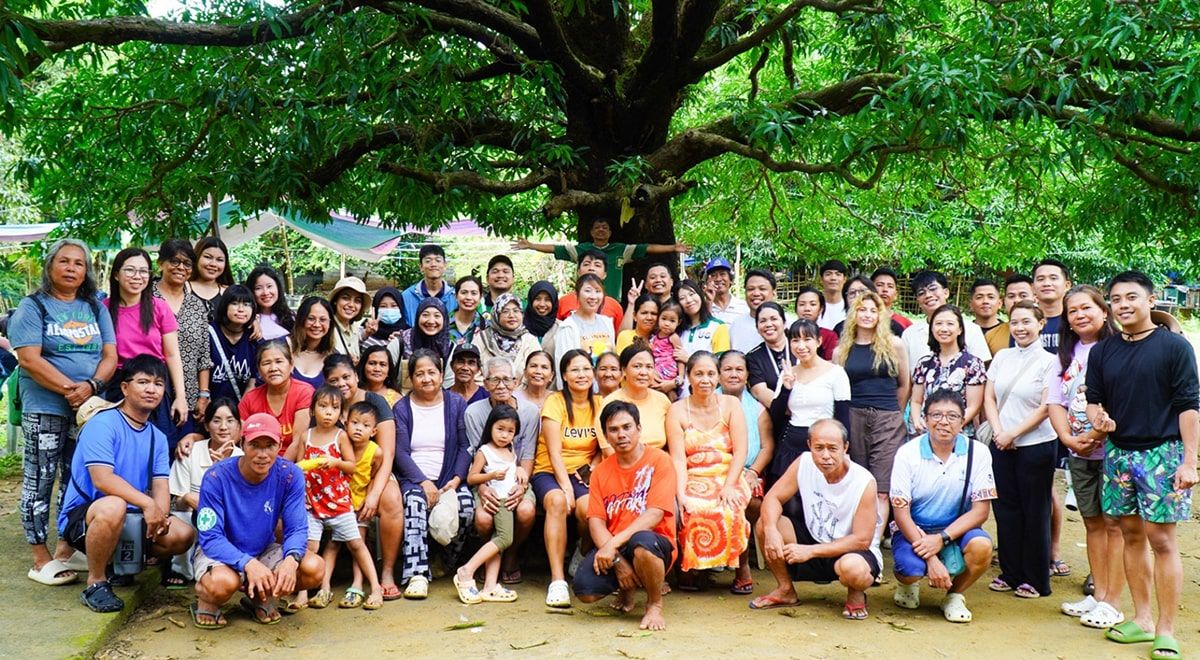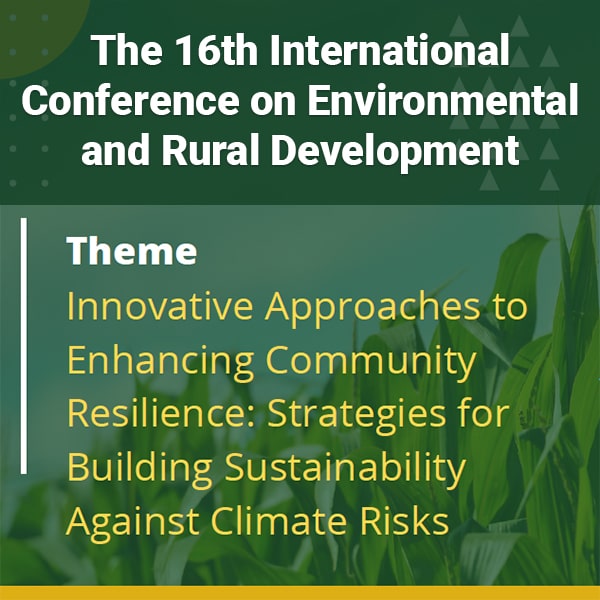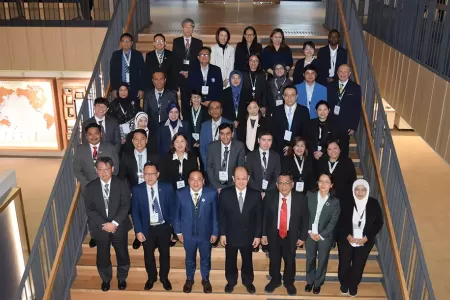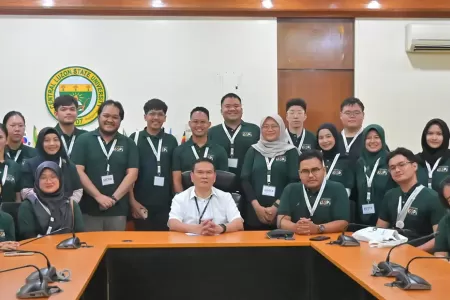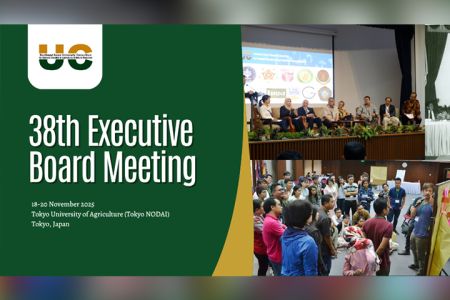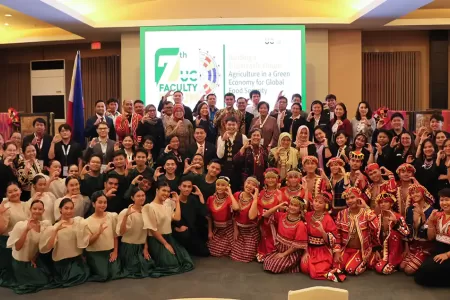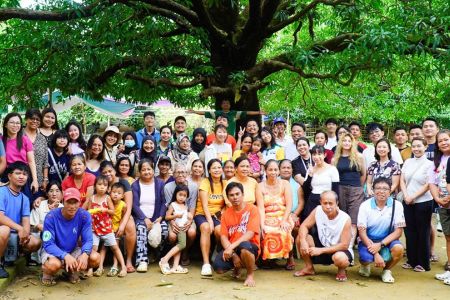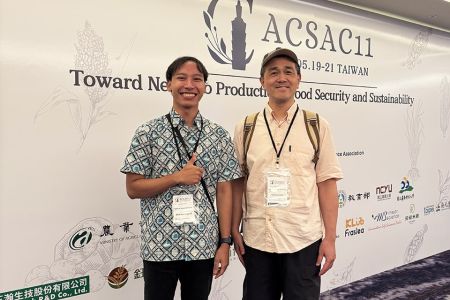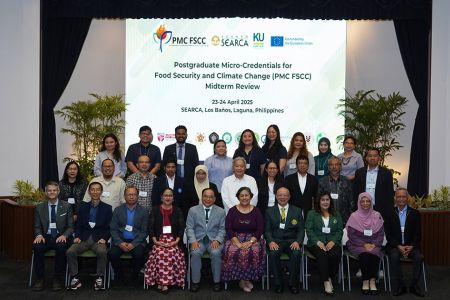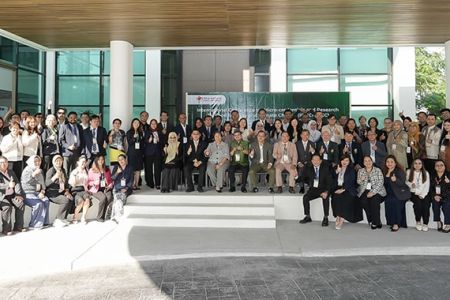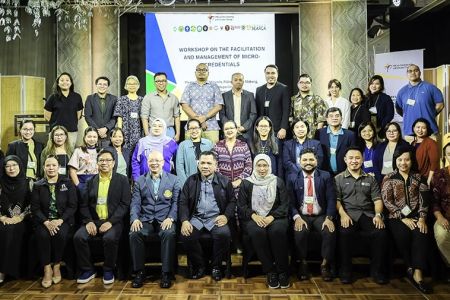SEARCA and UPLB Collaborate to Hold Global Conference on Climate Change

“The agriculture sector is most vulnerable to climate change due to its heavy reliance on climate and weather. Yet, agriculture remains to be the backbone of the global economy as it also bears the responsibility of feeding a population that has grown by leaps and bounds while production continues to diminish due to losses in our natural resource base. With climate change wielding greater risks over this important sector, our food and environmental security are consequently affected.” This was a challenging reality reiterated by Dr. Gil C. Saguiguit, Jr in his message before the more than 150 participants of the “International Conference on Climate Change Impacts and Adaptation for Food and Environmental Security,”on 21-22 November 2012 at Los Baños, Laguna, Philippines.
And while many institutions have focused their resources on this emerging concern, Dr. Saguiguit emphasized the need to integrate efforts and “strategically pursue initiatives that can make the most impact.”
It was likewise for this reason that SEARCA, joined forces with the University of the Philippines Los Baños (UPLB) and the Asia Pacific Adaptation Network (APAN) to conduct the said global conference on climate change which convened researchers, academics, policymakers, planners, development workers and other professionals from as far as Fiji Islands, Germany, Canada, Egypt, Costa Rica, Africa, Japan, and Southeast Asia. Other event partners were the DAAD-EXCEED funded Food Security Center of the University of Hohenheim, Germany, Asia-Pacific Network for Global Change Research (APN), Environment Programme, and Economy and Environment Program for Southeast Asia (EEPSEA), and German Agency for International Cooperation (GIZ)-Philippines through the Climate Change Commission (CCC) under the Office of the President of the Philippines.
Dr Paul S. Teng, senior fellow of SEARCA and the Center for Non-traditional Security Studies, S. Rajaratnam School of International Studies, Nanyang Technological University, as well as dean of Graduate Studies and Professional Learning, National Institute of Education, Singaporethen delivered his keynote speech for the said event. He underscored the importance of dealing with climate change effects in a multi-sectoral, multi-lateral, multi-disciplinary but integrated approach, to reduce food insecurity, which can be felt in both rural and urban areas.
Plenary speakers included Dr. William Dar, director general ofthe International Crops Research Institute for the Semi-Arid Tropics (ICRISAT); Dr. Seishi Ninomiya, professor of the University of Tokyo;Dr. John Pulhin, Dean of the UPLB College of Forestry and Natural Resources;and Dr. Reinhold Muschler, Latin American Chair for Agroecology and Agrobiodiversity of the Center for Tropical Agriculture Research and Higher Education (CATIE) in Costa Rica.
The following SEARCA Program Heads also participated in the conference: Dr. Ma. Celeste Cadiz, Knowledge Management Department, Dr. Editha C. Cedicol, Graduate Scholarship Department, and Dr. Bessie M. Burgos, Project Development and Management and Officer in Charge, Research and Development Department.
The final plenary session gave emphasis on the importance of networking towards a more integral research and development, as well as capacity building on climate change. The said global conference was expected to initiate and strengthen collaborations across agencies both public and private, at the local, national and global scales.



